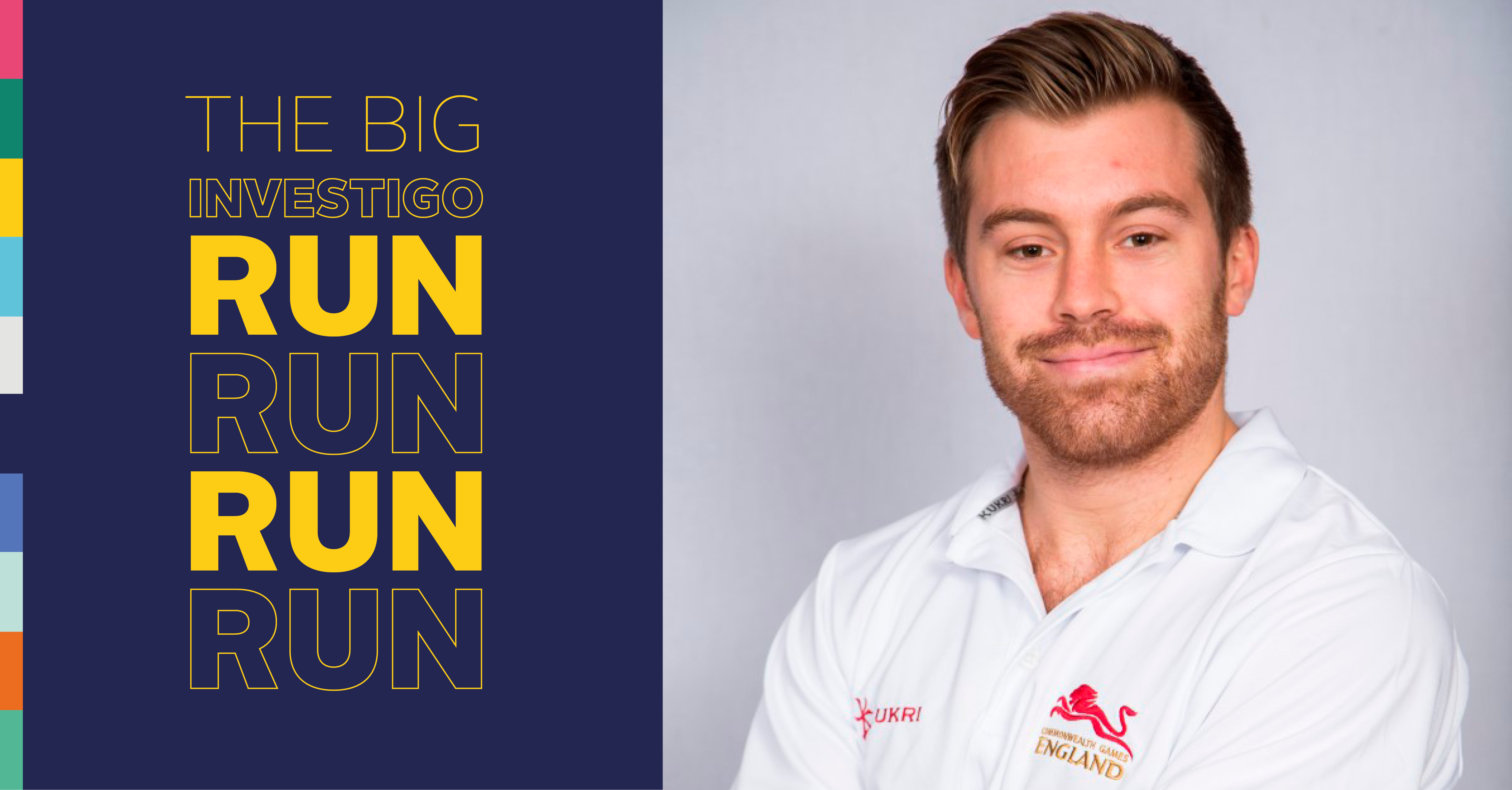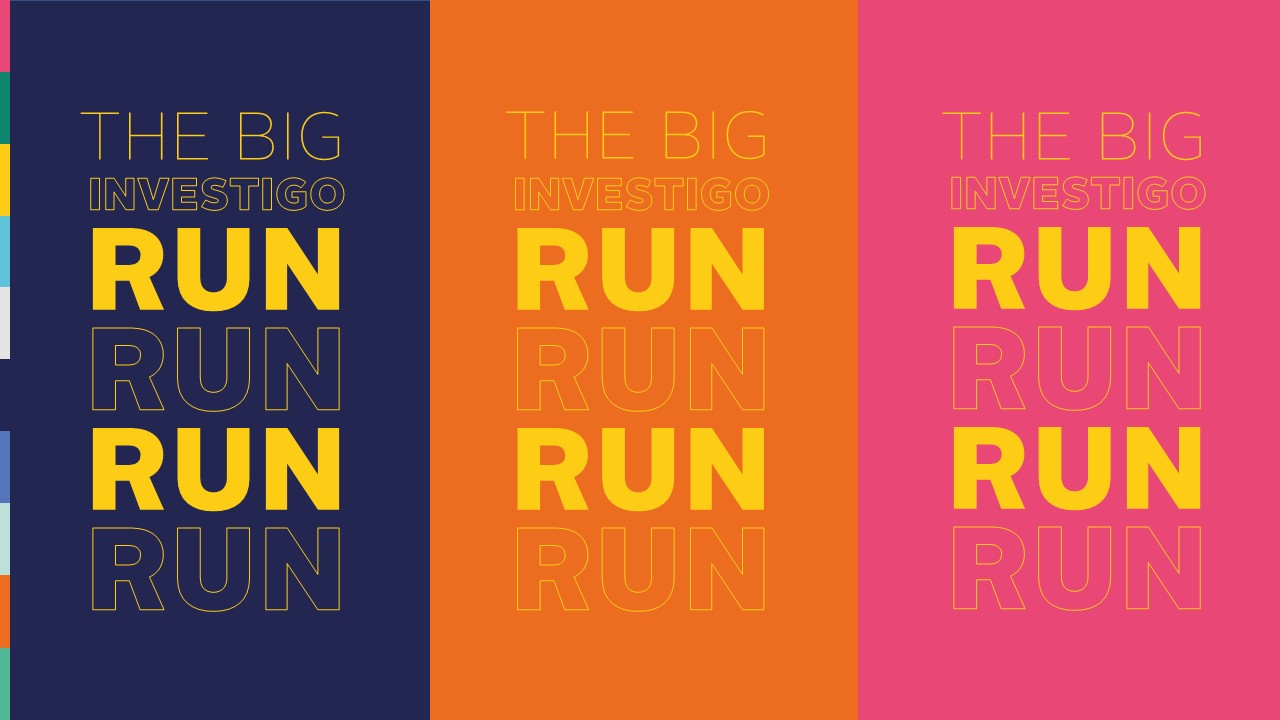
The Final Few Weeks | An interview with Daniel Wagner, Team GB
Team GB performance development expert, Daniel Wagner, gives us his top tips from the UK’s elite athletics camp on the final countdown to your big run.
Two weeks out, what should people be doing before the Big Investigo Run (or any major sporting calendar event)?
Usually at this point, you would hope to be physically in good condition, tailing off some of your training to start stockpiling energy for your big run. This is the perfect time to be planning the little details that often get overlooked but can make a huge difference. The top athletes will have a team of 4 or 5 people to help them prepare for the big events – a psychologist, a nutritionist, a coach, a lifestyle coach and a performance manager.
Things people should be thinking about are what we call the ‘microdetails’:
Nutrition – what you will be eating in the 3 days leading up to the event, lots of heavy carb foods such as potatoes and pasta. Being careful with spicy foods or any new food that could upset your body. Planning what you will have the morning of a run. Lots of people think you’d run better on an empty stomach. This is wrong. You should try to have a basic carb breakfast – some oats and simple fruit. Highly calorific for slow release energy to get you through the day.
Lifestyle – most top athletes wouldn’t touch alcohol, in some cases for their entire career – but never around big events, usually for months leading up to it. Alcohol itself won’t impact your training directly, but it does affect sleep, which impacts energy levels and recovery. It’s a sequential and knock-on effect which will reduce your ability. Save the champagne for the finish line!
Logistics – have you planned where you will do your run? Think about traffic, people, cars, dogs and hills! Is there somewhere nearby you run that will allow you to go faster or have less interruptions? Also have you thought about your plans on the day? Can someone help you with your gear and water? If you drive somewhere, will you need money for a parking ticket? Are you setting yourself up to succeed on the day?
Equipment – don’t go out and buy new trainers the day before your run. Give your body time to test and wear in any new shoes or clothes. In preparing for the run, don’t underestimate the power of making a list to prepare for the day. You don’t want to turn up to the race start line and a lace snaps or you’re wearing a new top and get the dreaded ‘nipple chafe’.
During the event?
The most important thing during your run is to stay in control and react to things around you. Some people can train and focus so much on an event that, when they are actually there, a tiny thing could throw them mentally. I always emphasise to my athletes the need to relax and think about the WHY? Why am I doing this? What’s the drive for me? Is it a gold medal at the Olympics? Is it for charity? Is it for fitness? Focus on this, this will get you through.
Divide the route up in your head. This could be based on distance or sites you’re running past – think about getting from one end of the park to the other, don’t picture the full distance! Then check the segments off in your mind and slowly you’ll find yourself getting past halfway and near the finish.
If you’re tired or struggling you need to make a call. If something hurts you should probably stop and stretch or walk for a bit to make sure you’re not damaging anything. If you’re tired, consider slowing your pace for half a mile to catch your breath and then build back up to the pace you want.
Final words of wisdom
Don’t stress yourself training, it’s okay to miss the odd session you have planned if you don’t feel up to it. Missing one session won’t hurt, but if you are overdoing it, this will impact you overall. Finally, try and enjoy it and think about the positive impact the training and the run will have on you body, mind and your charity. Don’t worry about comparing yourself to other people, unless you are specifically going for a fast time and competing. The key is getting around and enjoying it.
How has COVID-19 impacted the elite athletes?
Most of our athletes have had ‘elite athlete’ exemption so have been allowed to train and travel so the impact hasn’t been totally negative. In fact, in some cases, particularly our long distance endurance athletes, we have seen improvements in their training because they don’t have to get involved in other commitments such as media work. As the world has shut down, they’ve been able to focus totally on training. The Olympics this year have been delayed for a year, which means they’ve had an extra year training… but of course so have the competition!
The biggest impact is more on the younger generations who, due to lockdown, may have quit sports, lost training time and generally been inactive. There has also been an impact on niche sports that could lose funding because of the lack of younger generations taking them up.



